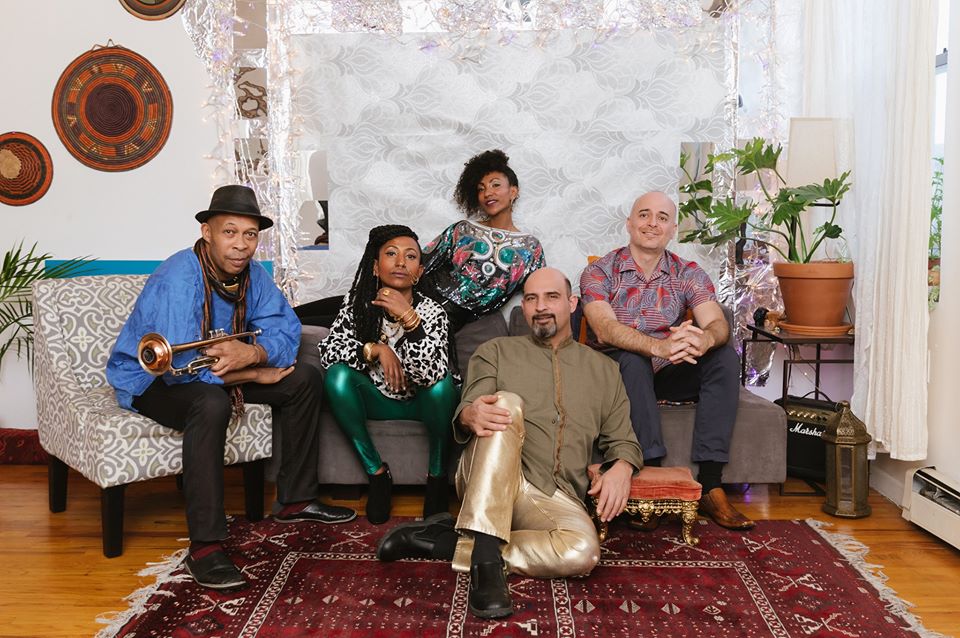On March 21, Alsarah & the Nubatones play the Festival Banlieues Bleues in Paris. For lead singer Alsarah, born Sarah Mohamed Abunama-Elgadi, the show is the latest stop on an evolving global sonic tour.
The musician brings with her a story of migrations voluntary and forced, which weave through her songs’ lyrics. These include traditional “songs of return” or covers of Nubian classics, and songs meant to reflect her new Sudanese diaspora.
Based in Brooklyn, Alsarah also appeared in the People’s Choice Award-winning Documentary Beats of the Antonov.
After a Nomadic Childhood, Alsarah Finds Grounding in Music
Alsarah was born in Khartoum, Sudan in 1982. She fled with her family at the age of 8 to Yemen – where another unstable political situation prompted the family to move again. Finally, at the age of 12, Alsarah arrived in small-town Massachusetts.
“I’m more comfortable as an immigrant than as anything elsе,” remarks Alsarah. “Being an immigrant and Sudanese are now tied with each other so deeply that I don’t know how to separate them.” After uprooting her life so many times, music became her way to travel back to the places that she had lost.
“I want to create my current home, that’s made up of the bones of my old home and my new home,” she adds. “I was born Sudanese and I will die Sudanese, but [being] Sudanese doesn’t mean that I’m stuck in one place.”
Launching a Music Career
Alsarah studied ethnomusicology at Wesleyan, but ultimately felt that the academic study missed the soul of music. She first sang with Sounds of Taraab, where she met percussionist Rami El-Asser. The pair founded Alsarah & the Nubatones four years later. She incorporated the Sudanese/Nubian music she grew up with, the songs she learned from the other girls in Yemeni refugee camps, and the influences of Western culture after she arrived in the US.
“I wasn’t from any one place any more,” she explains, describing her childhood, “Sudanese people said I wasn’t Sudanese enough. Arabs said I wasn’t an Arab. Americans said I wasn’t American. I used to be like, ‘I don’t belong anywhere! Now I’m like: you’re all mine. All my countries, you’re all mine.”
The band soon expanded to include Armenian-American oud player Haig Manouki, and French-born Togo-raised bass player Mawuena Kodjovi. After Manouiki’s passing, the band added his former student Brandon Terzic, and Alsarah’s sister Nahid.
A World Sound Tours the World
“I didn’t think anyone was going to hear this beyond the borders of New York City,” Alsarah recalls of the early days of the band. Their first album, Silt, came out at a time “when no one else in New York was doing Nubian music.”
Nevertheless, Alsarah & the Nubatones have reached audiences far beyond Brooklyn. The group has toured in more than 10 different countries, including Hungary, Sweden, and Lithuania. The Paris show on March 21 is one stop on an international tour that also includes a performance in Stockholm.
Follow the band’s performance schedule on Alsarah’s Facebook page and the band’s Facebook page. Tickets to band’s shows can also be found on SongKick.



